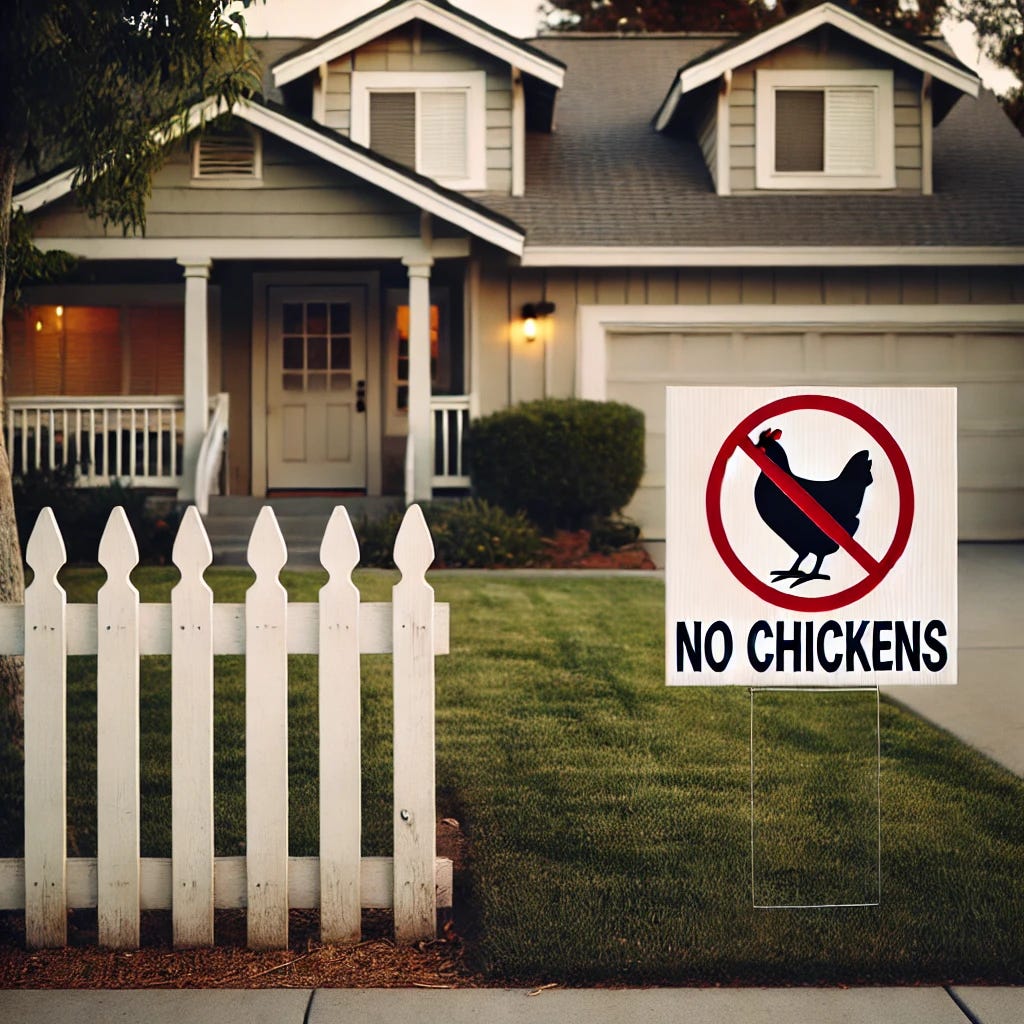Council Says No to Urban Backyard Chickens
After dedicating nearly half the meeting to the subject, council conceded on some rules while backtracking on others.
In a lengthy debate on Tuesday night, council made some concessions on chicken restrictions but added a significant limitation for urban homeowners.
In a move likely to frustrate many proponents, the new controversial chicken bylaw prohibits keeping chickens on lots under one acre in West Nipissing.
During over 50 minutes of deliberation, Field Councillor Kaitlynn Nicol and Lavigne Councillor Georges Pharand led the push for more flexibility on chicken regulations. Councillors Fern Pellerin and Kris Rivard also supported greater leniency.
However, when it came to a vote on determining the final number of allowable chickens on properties over 0.2 acres (originally set at four in July), five councillors opposed the motion. Sturgeon and Cache Bay Councillors Jamie Restoule, Daniel Gagné, and Roch St-Louis, along with Mayor Kathleen Thorne-Rochon and new Verner/River Valley Councillor Rolly Larabie, voted to forbid hens on smaller properties.
The same five councillors also opposed removing new restrictions affecting RU property owners with less than 2.2 acres.
Summary of New Rules for Backyard Chickens
Property owners with less than one acre will be prohibited from owning chickens.
Properties zoned R1, R2, R3, SR, RR, or RU that are over one acre may keep up to 10 chickens.
RU properties over 2.2 acres will remain unrestricted by this bylaw (status quo).
The 10-chicken limit applies to all R1, R2, R3, SR, and RR lots over one acre, regardless of how big they are.
In October, council had been set to pass a chicken bylaw allowing four chickens on any property over 0.2 acres. The proposed bylaw included strict rules on manure disposal, chicken slaughtering, and egg sales. However, before the meeting, a group of 24 residents submitted a letter to council expressing concerns.
This letter caught the attention of Councillor Pharand, who at the time raised these concerns and requested a deferral of the bylaw vote.
This week’s meeting reopened the discussion on chicken limits. Previously, former Verner/River Valley Councillor Anne Tessier had agreed to urban chickens. However, her successor did not share the same view.
While the new bylaw restricts chicken ownership on properties under one acre, council did agree to remove restrictions on butchering and manure disposal. Nevertheless, this will be unwelcome news for many chicken owners, whose coops will now be illegal.
Councillor Fern Pellerin referenced a prominent constituent in Verner, known for discussing urban chickens extensively online and owning chickens for years. Pellerin asked what would happen to such residents under the new regulations.
Staff will prepare the final draft of the bylaw, which council will officially vote on at the next meeting.
The West Nip Voice is a regular newsletter covering issues in West Nipissing and the surrounding area. Please consider becoming a subscriber.





I am displeased to say the least. In my opinion, 0.2 acres is more than adequate for a few chickens. In the past our neighbour kept chickens and they were absolutely no problem compared to kids yelling in swimming pools and barking dogs. They are small....not like horses or cows. I would have spoken out if I had any idea that the propsal would be significantly changed at the last moment. For the record, Mr. Roch St. Louis, our member , would have been made aware of our feelings! I don't think I am the only one that is outraged at the "quiet" turn of events. Are we going to see these letters of complaint?
Priceless! Our municipal commissars can't seem to deal with drinking water for the people of Verner, but they can sure come down on those pesky chickens. Imagine, people trying to use their own property to deal with high inflation and stagnant wages. Where do they think they are - in a free country?
I guess the next question is, why now? Since time immemorial, this does not seem to have been a problem. Or at least, not one worth the council's time. What changed?
Here it is necessary to extend our scope. Since the majority of the council does not seem to have a mind of its own, a person would be inclined to look at the senior staff, who from previous issues of this letter seem to be directing the majority of the council. Here we come to the fundamental issue of bureaucracy. It seems to be the inherent tendency of bureaucracy, municipal, provincial, and federal to extend itself. To hunt for new ways of controlling people and extending its revenue sources - along with avoiding responsibility and clearing difficult issues off its plate.
The extreme example of this condition was in the Stalin regime of the old Soviet Union, but the tendency of bureaucratic over-reach is inherent in every bureaucratic system that is not continually reined in by popular scrutiny and control. It's called democracy - but that doesn't work when the people and their representatives are asleep.